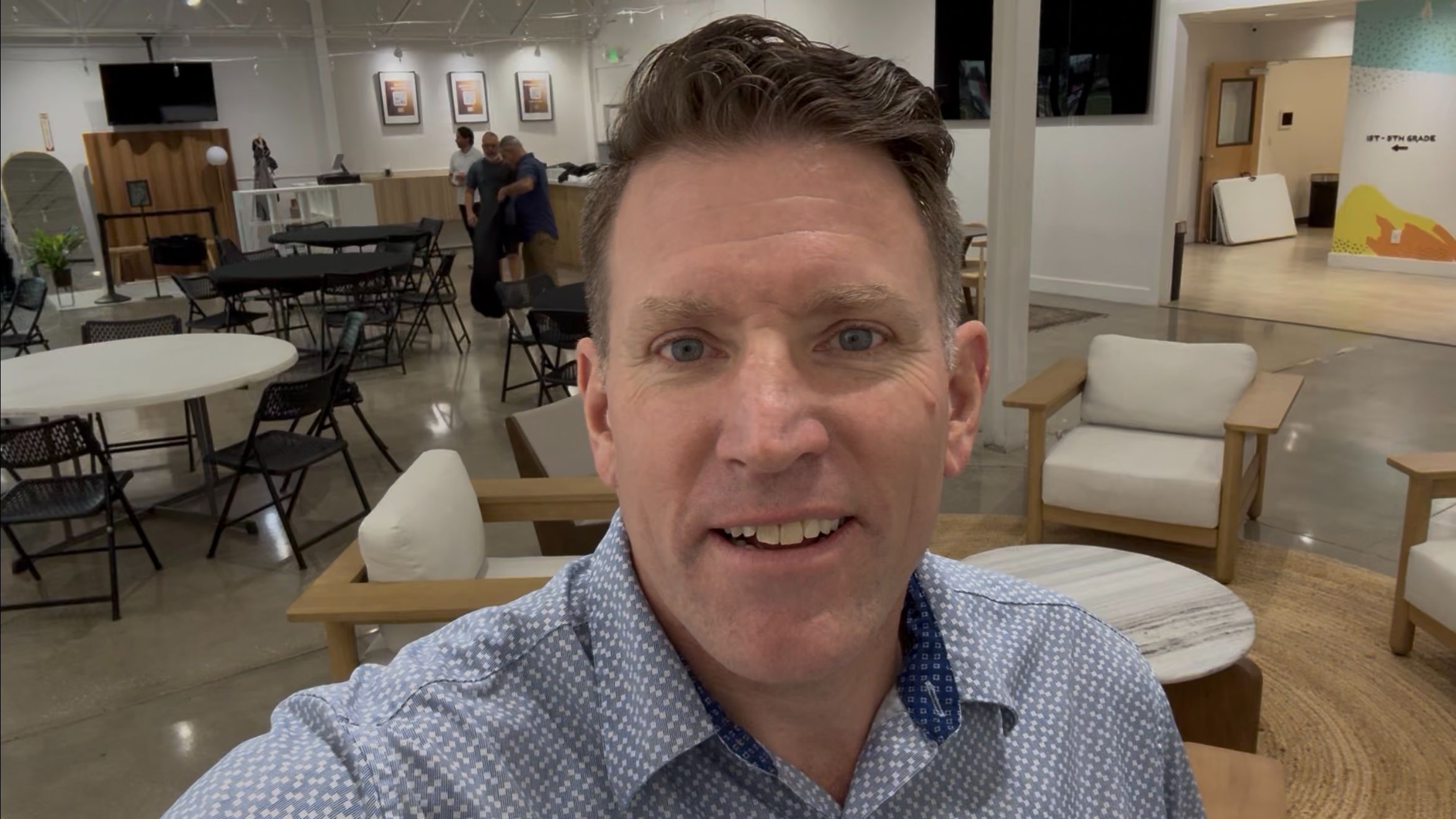Not a Pep Talk: Hearing God in a Culture of Injustice
Sep 17, 2025
If you’ve been around motivational speaking, you’ve heard Habakkuk 2:2 used like this:
“Write the vision and make it plain…”
The usual takeaway? Make a vision statement. Create a dream board. Write down your goals so you can achieve them.
But here’s the problem: that’s not what this verse means. Habakkuk wasn’t recording his personal goals. He wasn’t writing a self-help list of dreams. He was documenting a shocking, gut-wrenching revelation from God - a vision so severe most people wouldn’t believe it even if they were told (Hab. 1:5).
To really understand Habakkuk 2:2, you’ve got to sit in the story.
Judah’s World in Habakkuk’s Day
Habakkuk lived in Judah around 612–605 BC. His culture looked disturbingly like ours:
Politics: Corrupt kings serving themselves, cutting compromising deals with superpowers instead of trusting God. Judah’s sovereignty was slipping away.
Religion: Temple rituals still happened, but idolatry was rampant. People claimed God’s covenant while living like pagans.
Justice: Courts were crooked. Bribes and favoritism ruled. The righteous were silenced while the wicked thrived (Hab. 1:4).
Society: Violence filled the land. The powerful exploited the weak. The poor had no recourse.
Mood: Fear of Babylon loomed. Cynicism about leaders. Weariness from waiting for God to act.
Sound familiar?
Habakkuk’s Complaint
Habakkuk cries out to God:
“How long, O LORD, must I call for help, but You do not listen? … Why do You tolerate wrongdoing?” (Hab. 1:2–3)
He’s raw, frustrated, disillusioned. If God is just, why is injustice winning?
God’s Shocking Reply
God answers, but not how Habakkuk expected:
“Look among the nations and be amazed. For I am doing something in your days you would not believe even if you were told. I am raising up the Babylonians, that ruthless and impetuous people…” (Hab. 1:5–6)
Wait. What? God’s solution to Judah’s injustice isn’t revival. It’s judgment - through Babylon, a nation even more violent and corrupt.
That’s like God telling us today: “You wonder why your courts are corrupt and your leaders self-serving? I’m allowing a greater power, like Nazi Germany in its day - to rise and discipline you.”
That’s the kind of vision Habakkuk was told to write down.
The Watchtower Posture
Staggered, Habakkuk retreats to his metaphorical watchtower:
“I will stand at my guardpost and station myself on the watchtower. I will wait to see what the LORD says and how He will answer my complaint.” (Hab. 2:1)
Notice his posture:
- Positioned: He sets himself apart from the noise to listen.
- Expectant: He knows God will answer.
- Humble: He anticipates correction, not just comfort.
That’s when God tells him:
“Write the vision, and make it plain on tablets, that he may run who reads it.” (Hab. 2:2)
This isn’t Habakkuk’s dream board. This is God’s vision—terrifying, humbling, but ultimately redemptive.
Judah Then, America Now
Let’s be honest. America looks a lot like Judah:
Politics: Division, corruption, leaders serving ambition or agenda over people and what's best for the nation.
Religion: Christianity professed loudly, lived shallowly. Churches split, idols of money, sex, and power everywhere. Truth deemed "whatever feels right in your own eyes."
Justice: Courts bent by wealth, influence, and ideology. Whole communities believing justice is for sale.
Society: Violence in schools and streets. Exploitation through debt, addiction, and greed.
Mood: Fear of decline. Cynicism toward leaders. Disillusionment with faith.
If God let Babylon discipline Judah, do we think He would spare us if we persist in sowing the same injustice?
It may not come the way we expect. We wouldn’t believe it even if someone told us.
The True Call of Habakkuk 2:2
Habakkuk 2:2 is not a pep talk to chase your dreams. It’s a summons to:
- Climb the Watchtower. Get perspective. Create space to listen for God’s voice above the chaos.
- Expect Correction. Don’t just look for validation. Be ready for God to challenge your assumptions, plans, and idols.
- Write God’s Vision, Not Yours. What He reveals is meant to be stewarded clearly so others can live in light of it.
- Live by Faith, Not Sight. His vision may unfold slowly (Hab. 2:3). In the meantime, “the righteous shall live by faith” (Hab. 2:4).
Hope in the Waiting
Here’s the beauty of Habakkuk’s journey: he doesn’t end in despair. He ends in worship.
“Though the fig tree may not blossom, nor fruit be on the vines; though the labor of the olive may fail… yet I will rejoice in the LORD, I will joy in the God of my salvation.” (Hab. 3:17–18, NKJV)
Habakkuk never saw the revival he hoped for. What he saw was discipline, decline, and devastation. Yet he found unshakable hope in God Himself.
This is the lesson for us:
Our confidence is not in politics, economics, or cultural stability.
Our hope is not in self-made vision statements or dream boards.
Our joy is in the God who saves, even in famine, loss, or judgment.
The Bottom Line
Habakkuk 2:2 isn’t about manifesting your goals. It’s about stewarding God’s vision in a broken culture, trusting His justice, and choosing faith when the world falls apart.
When injustice multiplies and nations shake, the call is the same:
- Position yourself.
- Listen humbly.
- Write His vision clearly.
- Live faithfully.
- Rejoice in Him alone.
Because even if His methods shock us, His vision will not fail, and His salvation will not disappoint.
Read More: The Sparks Case Study
When Johnathan and Kara Sparks in Dallas, TX reached the end of themselves, they faced a choice much like Habakkuk: keep trying to run their company their way, or surrender it completely to God.
After 15 years in construction and real estate, they realized they had given the business to God in name but were still leading on their own terms. In radical obedience, they shut the company down - releasing staff, contracts, and income - and gave it fully to Him.
From that point, they:
- Partnered with God daily through prayer, fasting, worship, and prophetic listening.
- Shifted leadership from managing employees to spiritually fathering and mentoring them.
- Followed God’s green-light/red-light guidance on decisions, even when it defied business logic.
The result? Within a year, God redeemed $28 million in lost opportunities, gave them three breakthrough projects, and expanded their influence from Dallas to South Africa. Their obedience catalyzed a marketplace revival - touching employees, communities, and international networks.
The Sparks’ story is Habakkuk 2:2 lived out today:
- shut down your own dream board,
- climb the watchtower,
- write God’s vision plainly,
- and watch Him do what you wouldn’t believe even if told.
Next steps:
- Don’t just read this, do it. Set aside some time to listen and wait patiently on Him to respond
- If you need some help in hearing God’s voice, get yourself a copy of Listen Up! Hearing God at Work and walk through the exercises
- Wherever you are, find a local group of workplace leaders who unashamedly put Christ first – above politics, profit and personal desire. If you don’t have this locally, join us online: HeaveninBusiness.com/free-trial
Listen to the Podcast









